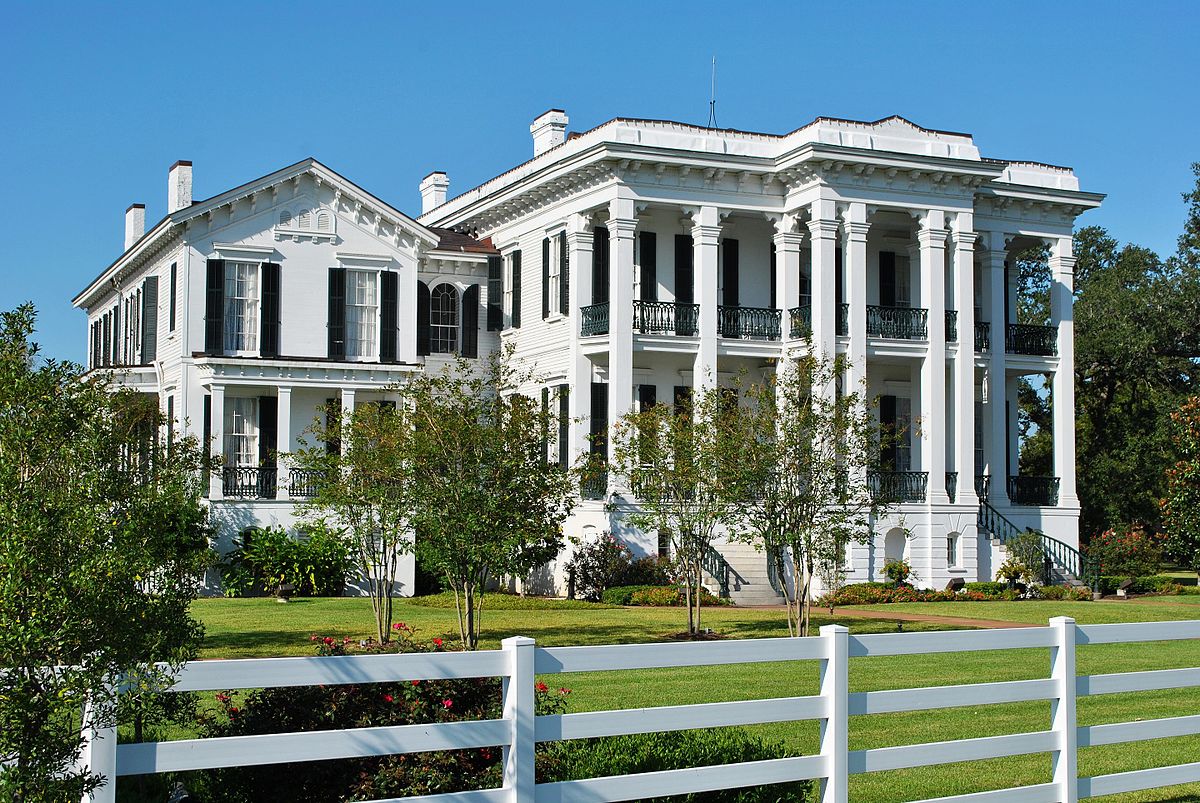
I am not from the south, but I lived in Baton Rouge for more than 13 years while teaching in the College of Art and Design at Louisiana State University. Both my sons were born in Baton Rouge and I continue to participate in a design and construction firm in Southern Louisiana. There are many wonderful people in Louisiana and my family continues to enjoy many marvelous moments with dear friends. However, like so many others I am disturbed by the residue of an economic system that relied on the exploitation of human beings — slavery. The black population still bears the hidden scars from this systematic, sustained oppression, and currently African Americans make up the majority of the community’s underclass. Grand plantations formed the backbone of the south’s economy and culture for more than a century and many of the historic structures of this era can be toured today.
The image shown here is Nottaway Plantation in White Castle, Louisiana, built in 1859, which is operating currently as a high-end resort.
Consider the connections and the complex interactions that must have existed between the plantation owners and their slaves. What were the distorted mindsets that took root while they lived and worked together on the same strip of land day after day? It is not difficult, for example, to see why thinking of blacks as “less than human” became a necessary mental rationalization for slave owners to maintain and benefit from an immoral system. With the benefit of a historical perspective it is easy to be critical of others while personally feeling immune from such grave lapses in judgement. Now, consider the individuals that made your shoes, the shirt on your back or grew the coffee beans that were a part of your breakfast this morning. We have all heard reports about people around the globe toiling long hours in deplorable conditions to support our way of life. What mental rationalizations are we making today? Would we think and behave differently if these individuals lived in our back yard and interacted with us every day?
The United States accounts for less than 6% of the world’s population and controls more than 50% of the earth’s wealth. We live in the richest country that has ever existed. Unfortunately, our way of life is dependent on a complex global network that we helped perfect, which obscures our connection to those that support our way of life. It is always unpleasant to see how the sausage is made. It is much easier to retreat to the big house, close the shutters and convince ourselves we deserve even more. That is why the working class people who make affluent resort towns function often live in trailer parks 30 minutes out of town with substandard schools. This is why so much of our petrol-chemical infrastructure is located in poorer states and communities. It is easy to ignore or forget what we don’t see — to perpetuate a myth that we are self-made, independent and autonomous. Yet we have never been more dependent, responsible and deeply connected to one another.
